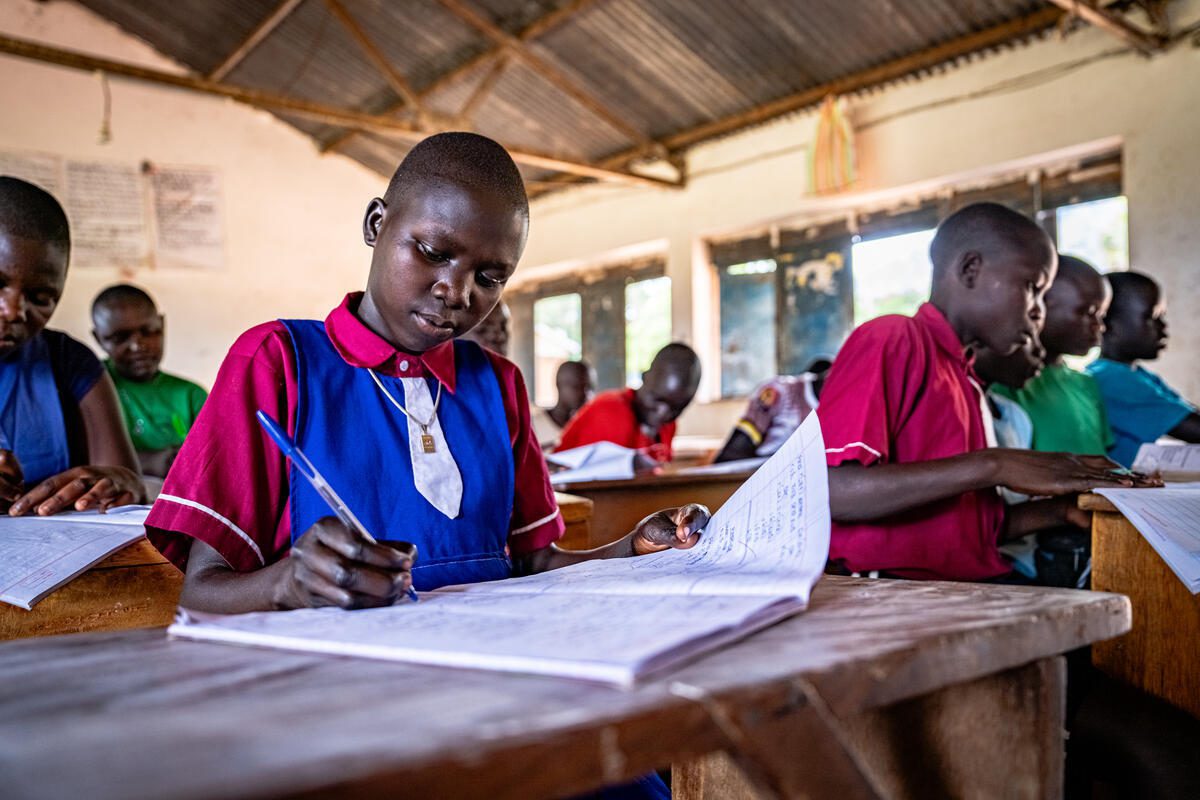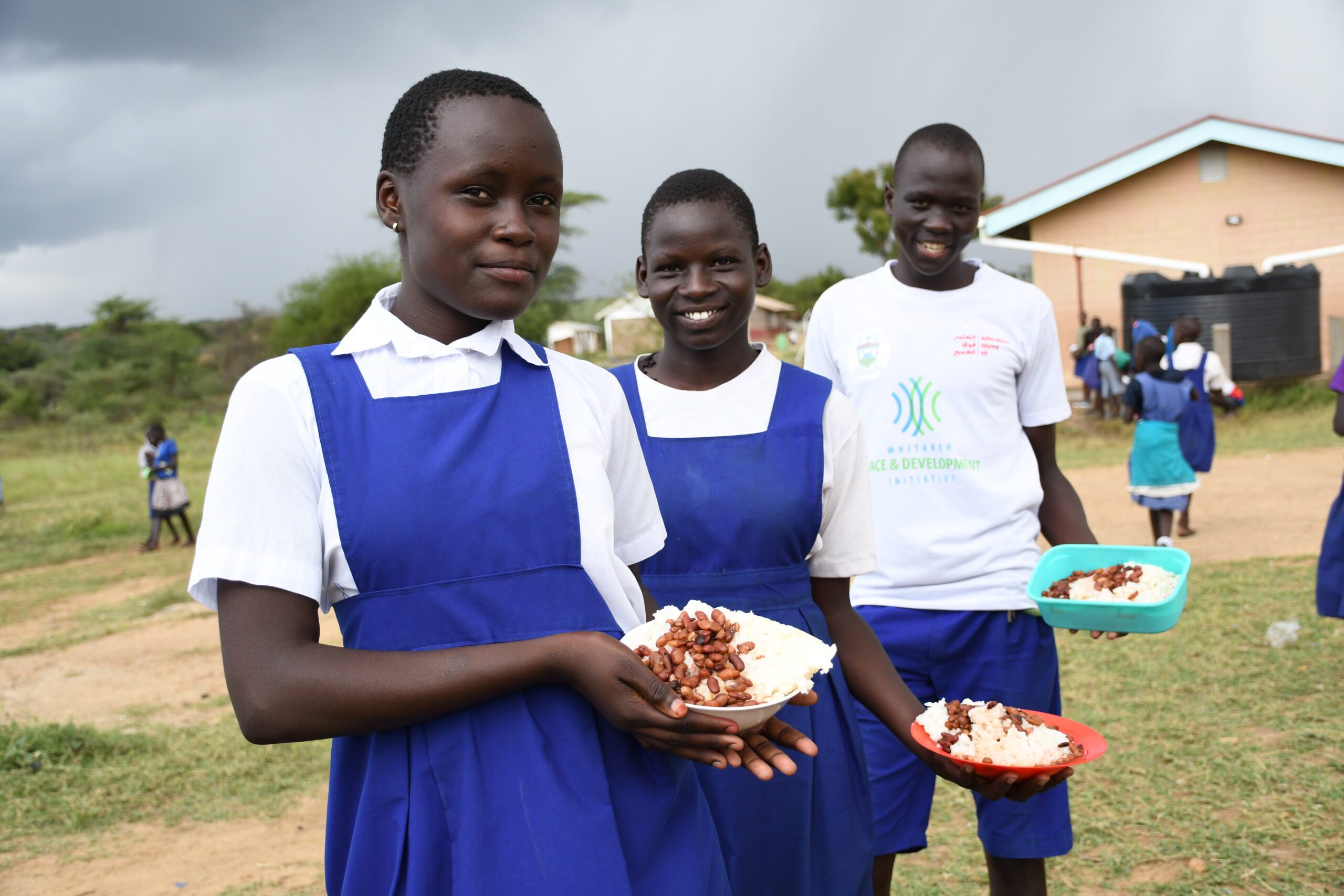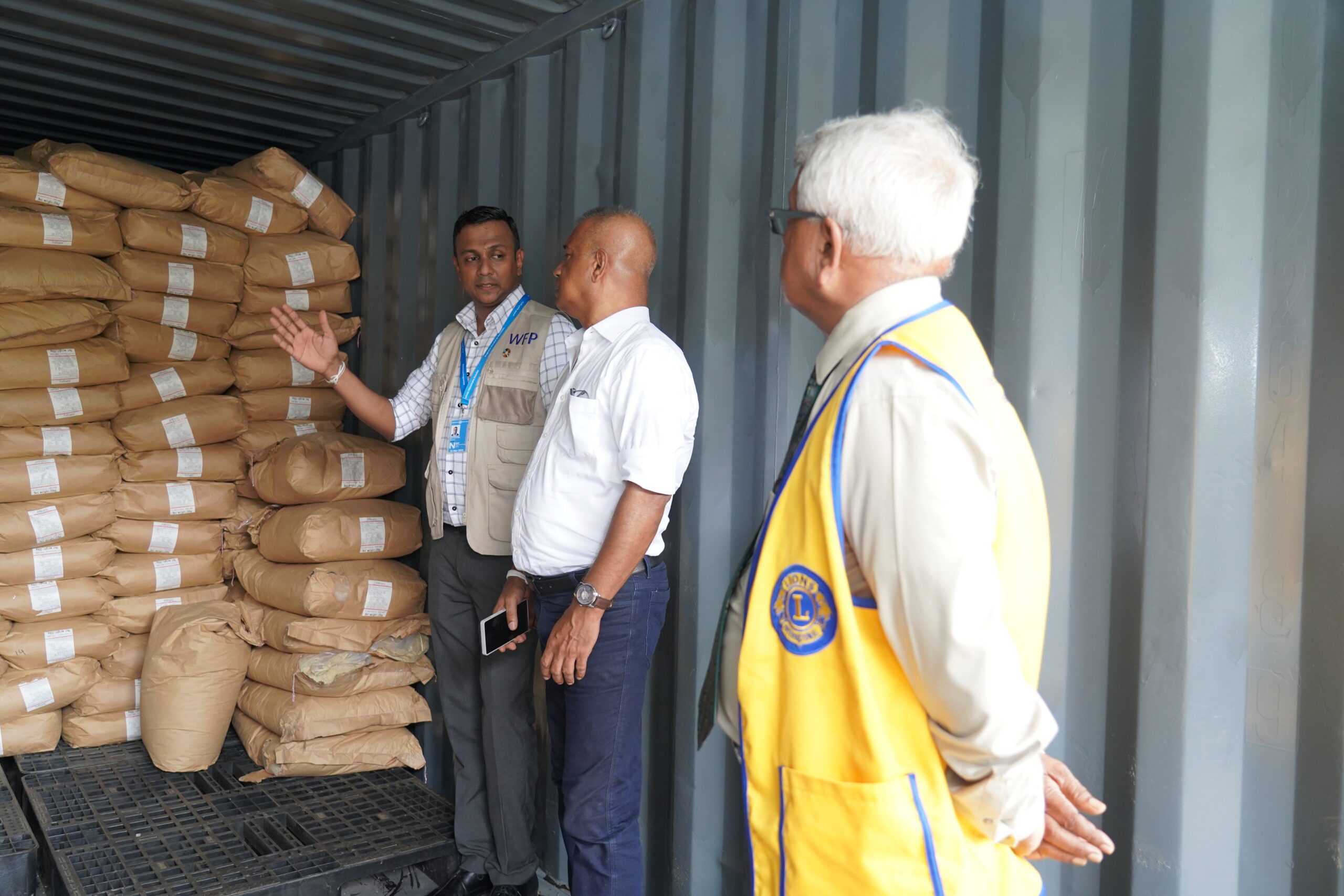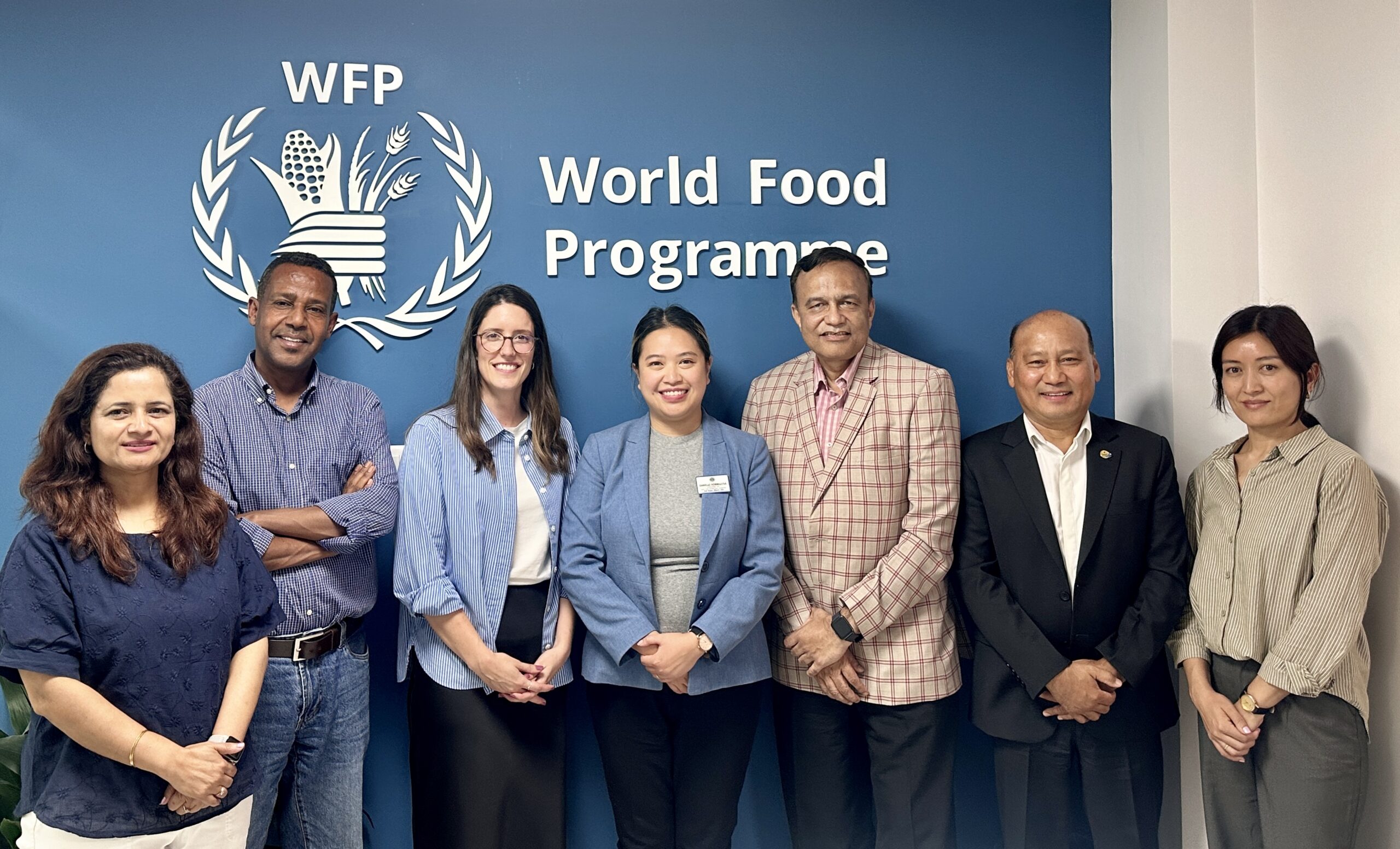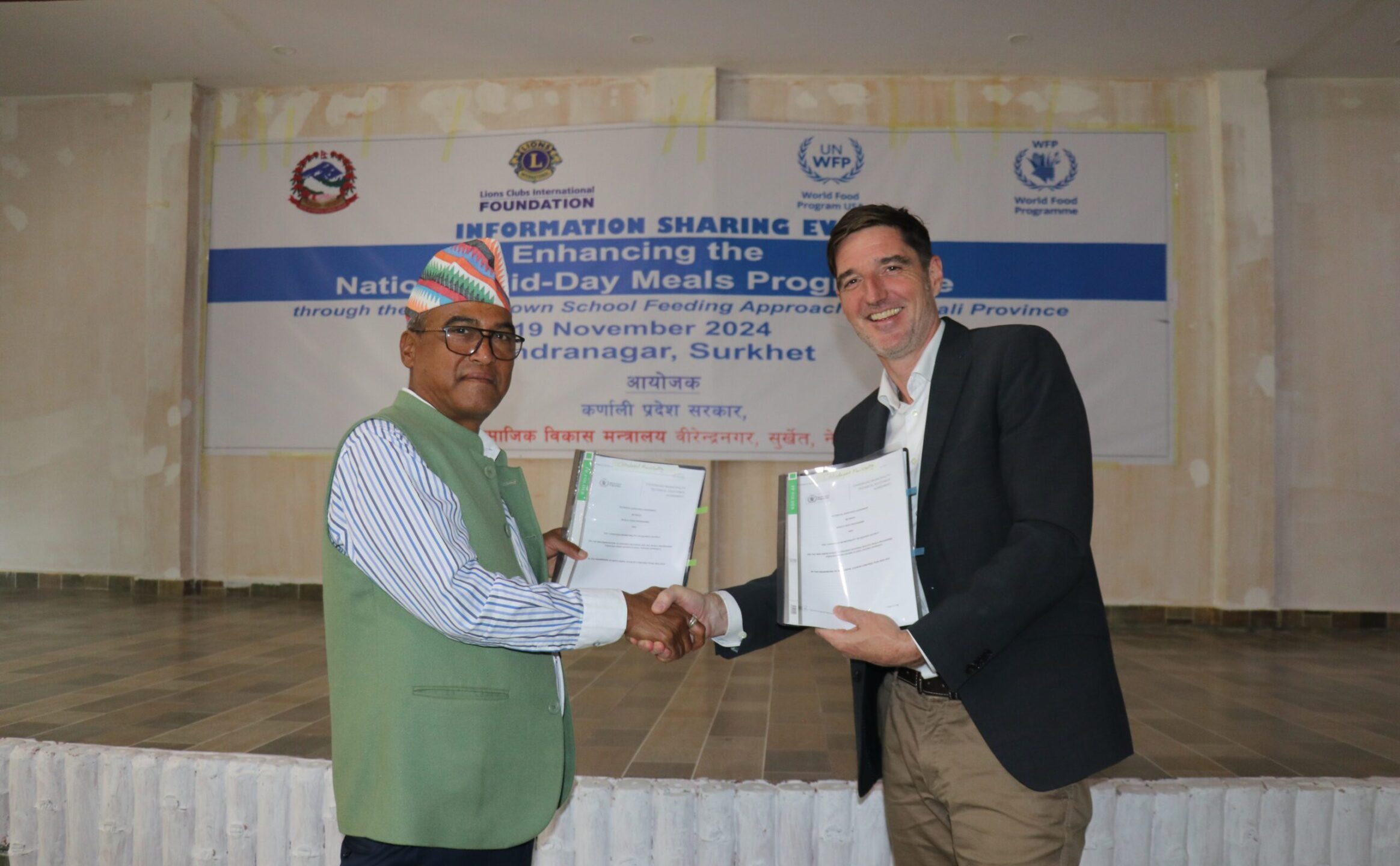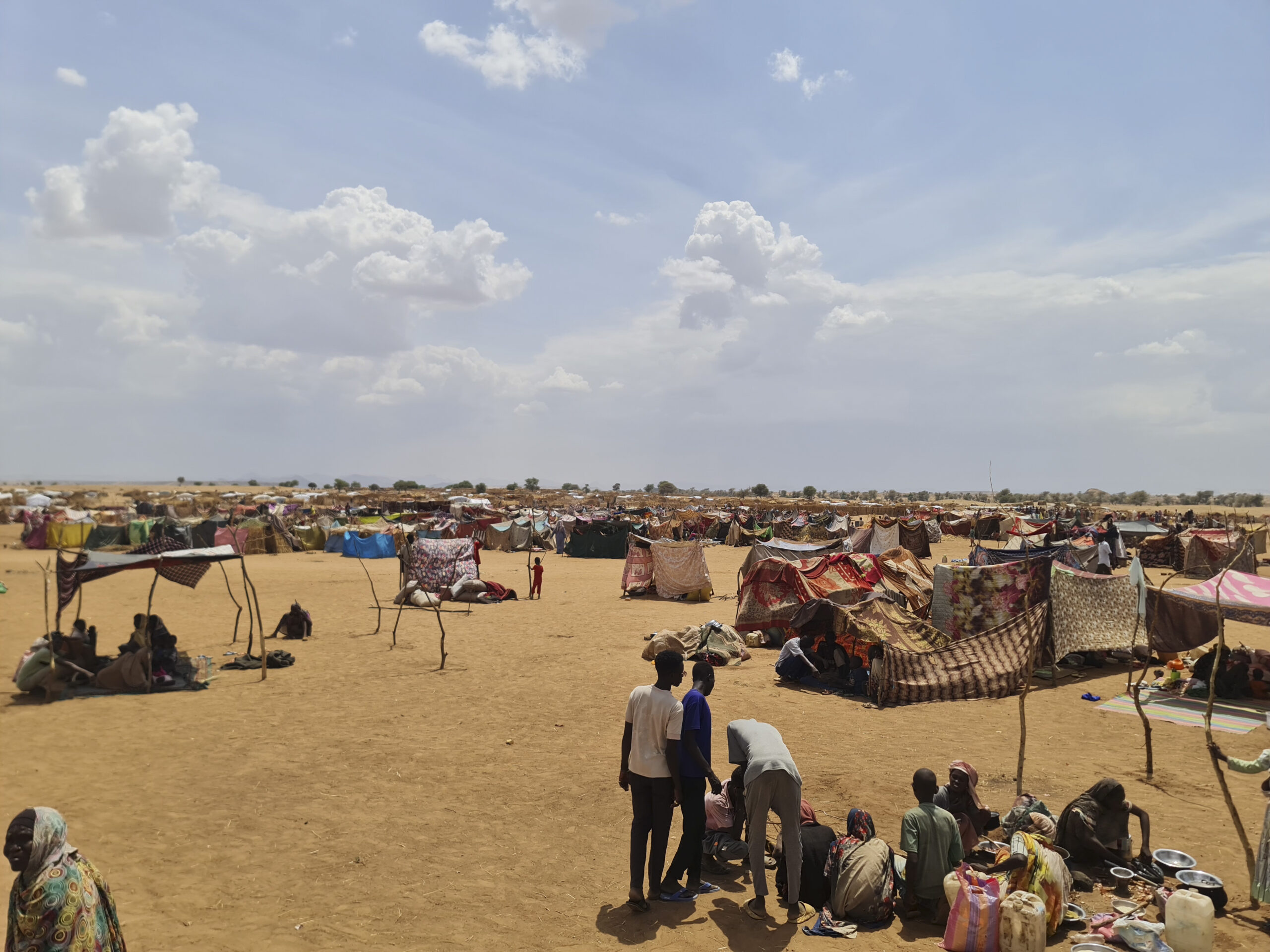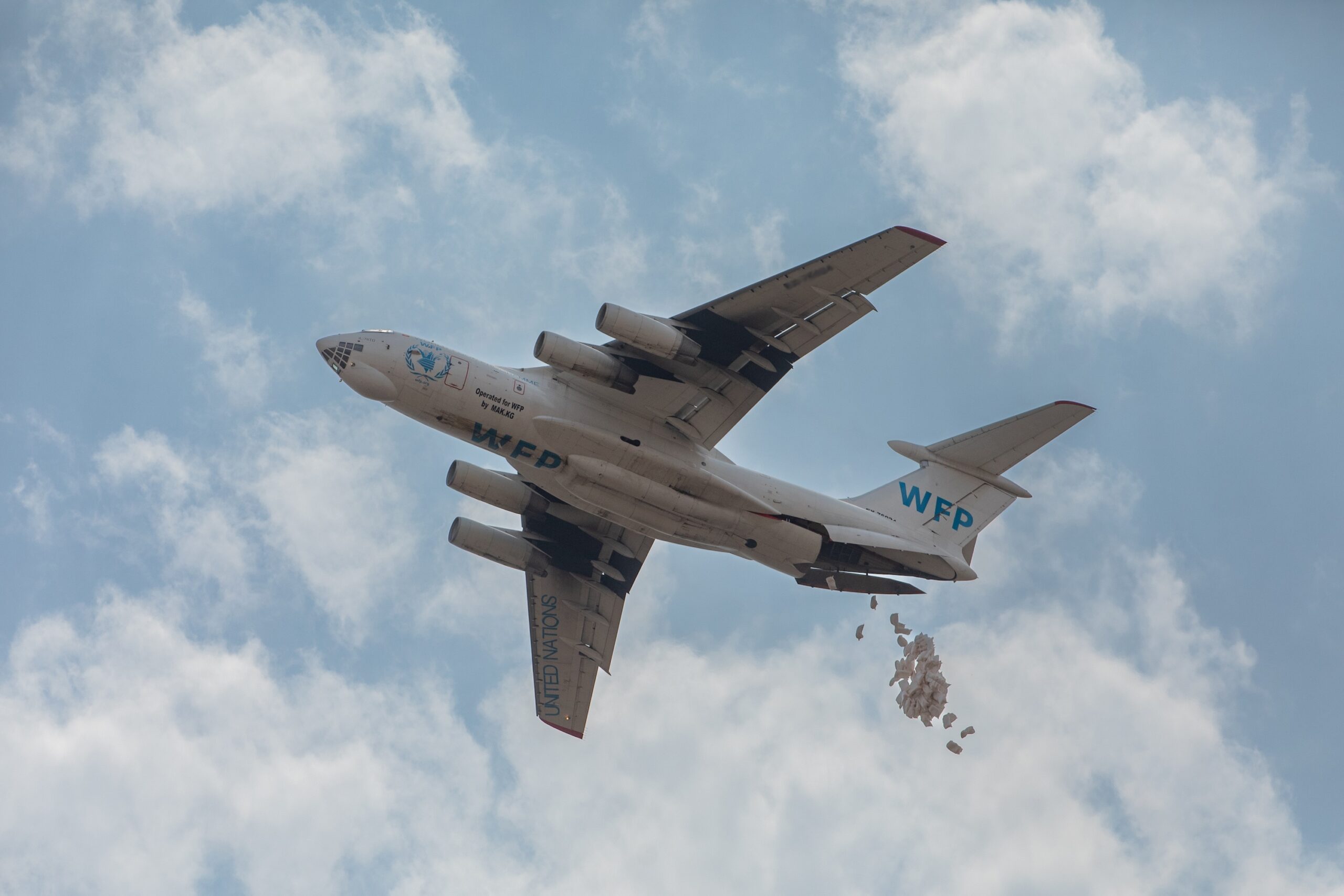Every day, millions of children arrive at school on empty stomachs. Hungry and tired, many will struggle to focus on the day’s lessons — and some will stop attending altogether to help their families at home or to find work. But it doesn’t have to be this way.
Daily school meals ensure every child receives the nourishment they need to survive hunger, learn, grow and reach their full potential in and out of the classroom. Homegrown school meals programs go a step further by sourcing food from local farmers, which boosts their incomes and creates a steady demand for their crops while making entire communities stronger.
That’s why Lions Clubs International Foundation (LCIF) and World Food Program USA have partnered to support the World Food Programme’s homegrown school meals programs in four countries: Ecuador, Nepal, Sri Lanka and Uganda. With a $2 million commitment from each organization, this joint effort is reaching approximately 880,000 children across 7,000 schools while supporting farmers, families, and local food systems. After one year, our work is already showing life-changing results.
School Meals Support Student Learning in Uganda
School meals are critical for improving students’ attendance, attention and performance — and we’ve heard that firsthand from students at primary schools in the remote region of Karmoja, Uganda. One student shared how the meals support her learning and help her stay on track to achieve her future goals:
“I used to go to another school where there were no school meals. At that school, student performance was very low, and some girls would get into relationships with boys just to get money for food. I have better plans for my future, so my parents decided to enroll me into this school where I get school meals every day. Now my performance at school has improved,” says a 15-year-old girl in Karamoja, Uganda.
School meals are particularly important for girls, boosting their enrollment by up to 12% while reducing early marriage and household work pressures. Parents and teachers have witnessed this impact and recognize that without meals, their kids might not be in school:
“What makes me proud is that it is not just helping us farmers, but it is also feeding our children in school. I can even see my child is doing well in class because her stomach is full. I can say it is the whole community that benefits,” says Mathias Menya, a farmer in Karamoja, Uganda.
School Meals Strengthen Communities in Ecuador and Sri Lanka
Homegrown school meal programs aren’t just valuable to children — by creating new jobs and raising incomes, these programs are gamechangers for their families too. In Sri Lanka, support from WFP, World Food Program USA and LCIF helped one school meal provider, Indra Kumari, open her own poultry shop.
Kumari can now produce more than enough eggs to supply lunches for students at nearby schools and sell extra produce at the market. With the additional income, Kamari is building financial independence and a brighter future for her family.
“Now, I am no longer in debt. By selling eggs, I have a steady income, and I can help someone else in need. I can confidently say that I’ve become financially independent since I joined WFP’s project,” says Indra Kumari, school meal provider in Anuradhapura, Sri Lanka.
School meals also save time and money for parents like Diana Anguizaca. “As parents, we don’t always have the time to prepare proper meals for our children. This project is really helpful as it ensures our children eat healthier. It also encourages us to eat healthy,” says Diana Anguizaca, a mother in Cañar, Ecuador. By offsetting a household’s income by 16%, school meals incentivize parents to keep their children in school and allow them to reroute money to other pressing essentials like medicine or rent.
Across every country in our partnership, we have seen how homegrown school meals programs bring stability to both families and local economies.
Lions Lead Around the World
Lions members not only provide critical financial support for this initiative — they are actively involved on the ground, meeting with students, serving meals, and witnessing the impact firsthand.
In Sri Lanka, Lions helped distribute meals to children at the Hulandawa Dakuna Maha Vidyalaya school in the Monaragala district. Afterward, they met with government officials to learn how school meals have helped improve students’ attendance, attention and learning.
In Ecuador, where WFP’s decentralized homegrown school meals model reaches rural schools in remote areas, Lions have observed all aspects of the multidimensional program, from improvements in school infrastructure to parents planning menus and preparing meals to small-scale producers delivering food. In Cañar, members of the Cuenca Lions Club helped paint a mural with a local artist while overseeing the delivery of school meals.
“The greatest impact we’ve observed is seeing participants taste local products grown in their own areas, knowing that local producers are being encouraged to continue their farming efforts and improve their economic situation. I believe this initiative has been well thought out and will undoubtedly positively impact the sector,” says Fernanda Sánchez, a member of the Cuenca Cuatro Ríos Lions Club in Cañar, Ecuador.
These Lions are demonstrating their dedication to creating a world without hunger and lending their time, passion, and expertise to support children, farmers and families alike.
School Meals Lay the Foundation for Lasting Change
WFP works directly with governments and local partners to build and sustain national school meal programs together. Already, WFP has helped more than 50 governments to take full ownership of their own programs, which reduces their reliance on external aid.
In Nepal, WFP is helping establish agreements between farmer cooperatives and schools to facilitate more efficient procurement and delivery of food under the government’s national school meals program. By providing trainings and operational assistance, WFP is creating a strong foundation for long-term food security in some of the hard-to-reach areas in Nepal’s Western hills and mountains.
“Through homegrown school feeding, we are serving nutritious meals that are fresh from farm to plate, supporting local farmers, and strengthening community food systems. The support from Lions Clubs International Foundation will be catalytic in strengthening homegrown school feeding approach in Karnali,” says Robert Kasca, WFP representative and country director in Nepal.
WFP provides similar technical assistance in more than 70 countries around the globe, reaching millions of children every day and helping governments build valuable long-term capacity for their school meals programs.
As this partnership continues, World Food Program USA and LCIF remain committed to supporting farmers, families and national governments, strengthening food security and ensuring every child has what they need to learn, grow and thrive.


